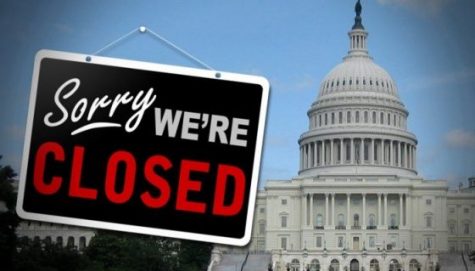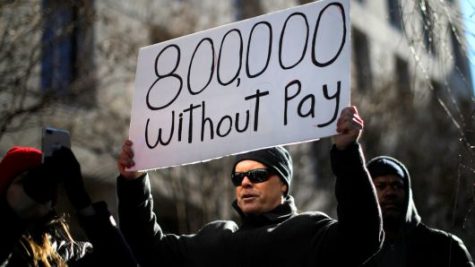Government Shutdown
January 25, 2019

Every country has its own government. It forces federalism, the presidential system, liberal democracy, and a free republic. Those are just a few to name. However, there’s always a time for the government to shutdown.
A government shutdown occurs when Congress fails to pass sufficient appropriation bills or continuing resolution. According to Investopedia, “If an agreement is not achieved, a government shutdown will close many federally run operations, like national parks and national museums, and halt work for federal employees unless they are considered essential.” The reason for the shutdown is because, according to Detroit Free Press, “President Donald J. Trump is demanding that Congress include $5.7 billion for a wall along the southern border, saying it is needed to keep undocumented immigrants from crossing into U.S. illegally and has refused to consider any appropriations that do not include that demand.” President Trump wants to deliver a Prime-Time address on government shutdown and will visit the border.
Democrats are standing firm against the proposal while Trump has threatened that the shutdown, which already said he would be proud to take responsibility for, could last for “months or even years.” In all honesty, that’s nerve-racking for the public to hear.

Now, this leaves others wondering who is going to be affected by this. For starters, this affects more than 800,000 federal workers in 9 different departments: Agriculture, Commerce, Justice, Homeland Security, Housing and Urban Development, Interior, State, Transportation and the Treasury. People are concerned whether or not federal workers are getting paid. As for food stamps, also known as the Supplemental Nutrition Assistance Program, or SNAP, the Department of Agriculture said this week that it has taken steps to make sure benefits are available through the month of February. The agency also says it has found enough funding to cover the Women, Infants and Children (WIC) Food and Nutrition Service through February as well. Essential employees still have to show up for work because their jobs impact safety or property. In this case, that means prison guards, TSA staffers at airports, Coast Guard units, Border Patrol authorities, and many others. Employees who work at places like the Environmental Protection Agency or HUD are sent home.
When asked about his thoughts about the shut down, Canyon High junior, Adrian Arellano, stated, “I think it’s unfair for President Trump to have a shutdown on the government. It disables some policies for some people. Not only that, but they don’t get paid while this shutdown is going on.”










